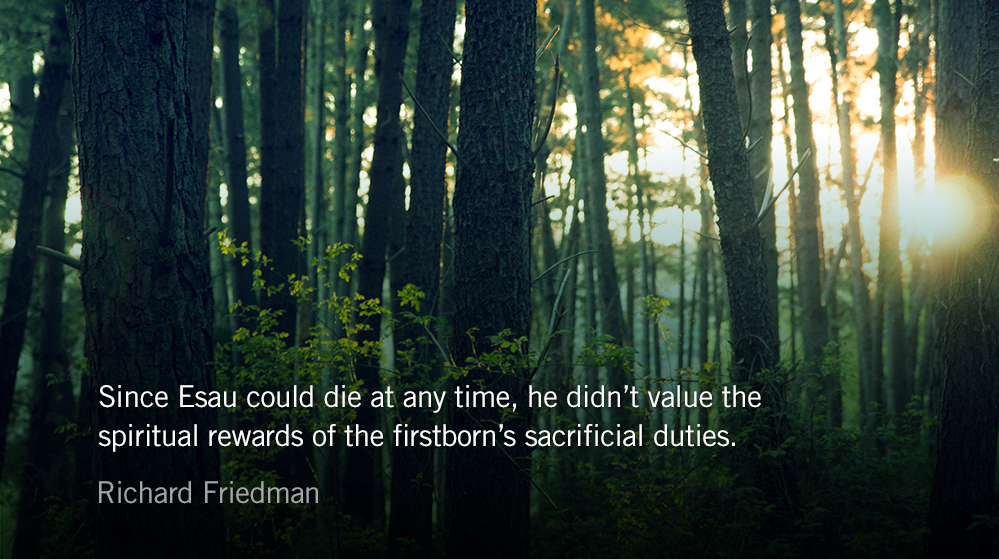He is no fool who gives what he cannot keep, to gain what he cannot lose.
― Jim Elliot
Scripture: Genesis 25.31-32
Jacob said, “Sell me your birthright now.” Esau said, “I am about to die; of what use is a birthright to me?”
Reflection: When Hope Breaks Down
The Park Forum
Disappointment for Esau’s impetuousness is nearly reflexive for those of us who grew up learning from this story where the elder brother gives up his future for a pot of meat. Yet the Torah is surprisingly silent—there is no scorn for Esau, but neither is there justification for Jacob.
Esau is obviously hungry–famished—in the moment, but there is a depth to Esau’s language that doesn’t come through well in English translations. Harvard trained Old Testament scholar Richard Friedman expands our understanding beyond the acute pangs of hunger:
Midrash attributes a different meaning to Esau’s statement. He wasn’t talking about facing death from starvation, but rather referring to his dangerous life of facing death every day as a hunter of wild animals. Since Esau could die at any time, he didn’t value the spiritual rewards of the firstborn’s sacrificial duties.
The elder brother had lost life’s most valuable resource: hope. He couldn’t connect the dots between each day and a greater purpose—what good is anything if you’re destined to die? In some ways we see a foreshadowing of what the wealthy and accomplished author of Ecclesiastes would write:
I have seen everything that is done under the sun, and behold, all is vanity and a striving after wind.
Though it diagnoses the same problem, Ecclesiastes comes to a vastly different conclusion; “The end of the matter; all has been heard. Fear God and keep his commandments, for this is the whole duty of man.” Esau never found this clarity—nor experienced the hope that comes from it—his brother did not allow him to.
Genesis records the stories of many brothers at war with one another. Jacob finds his brother in his darkest moment and, instead of loving him, embodies the spirit of Cain and conquers him. Instead of embracing him, he capitalizes on the elder brother’s fear.
Jacob and Esau’s story is about two aborted acts of faith. The first is about the toil of a broken world, the second is what happens when we sentence another person to weather the storms of life alone.
The Request for Presence
“Open my eyes, that I may see the wonders of your law.” — Psalm 119:18
– From The Divine Hours: Prayers for Autumn and Wintertime by Phylis Tickle
Full prayer available online and in print.
Today’s Reading
Genesis 25 (Listen – 4:18)
Matthew 24 (Listen – 5:59)






